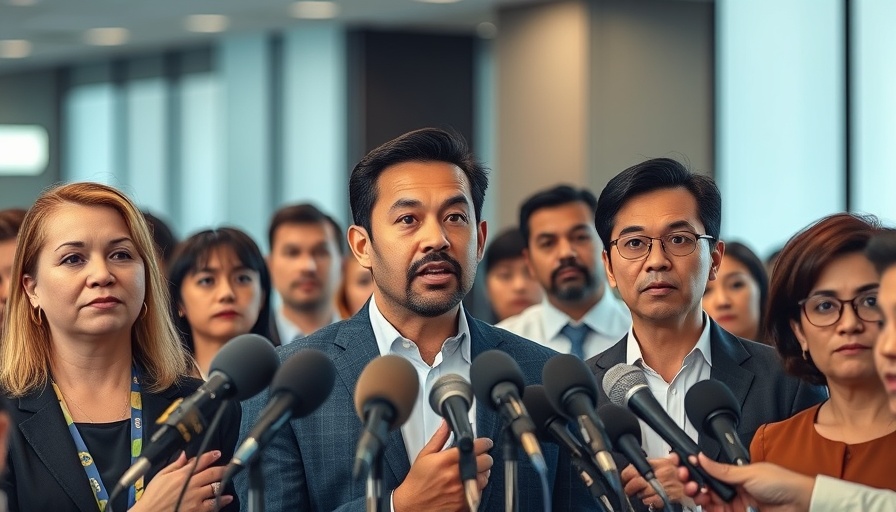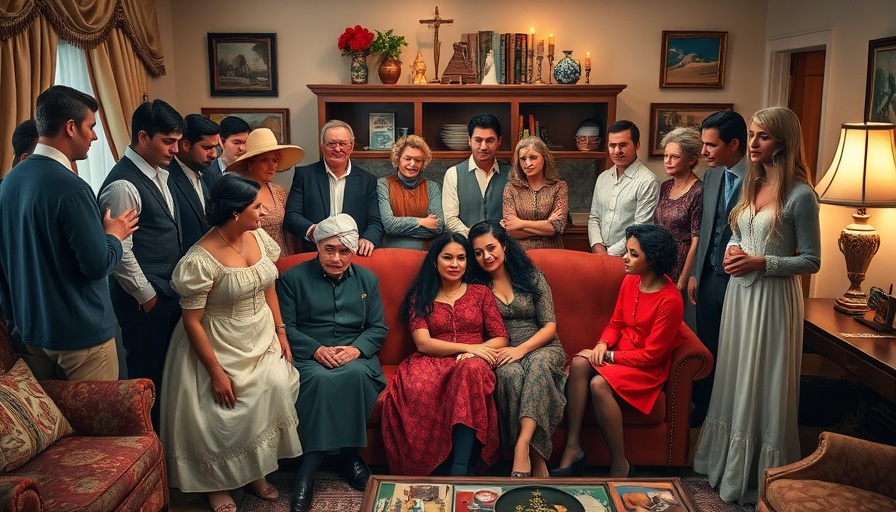
The Shocking Case of Baby Isaiah: A Tragic Invasion of Privacy
A Georgia jury's recent decision to award $2.25 million to the parents of a decapitated baby named Isaiah has sent shockwaves through both the medical and social media communities. The unusual case involved a pathologist, Dr. Jackson Gates, who posted graphic videos of Isaiah's autopsy on social media without the consent of his grieving parents, Treveon Taylor and Jessica Ross. This decision highlights the alarming potential for personal trauma to be exacerbated by breaches of privacy in a digital world.
Understanding the Details of the Case
Back in July 2023, Baby Isaiah was born deceased during delivery, reportedly due to a serious complication known as shoulder dystocia—a condition where a baby's shoulder becomes lodged during childbirth. Following the tragic event, Ross contracted Dr. Gates for an autopsy, expecting medical professionalism and confidentiality in such a devastating time. However, within days, Gates uploaded multiple graphic videos showcasing the autopsy on his Instagram account, despite the couple's explicit request against sharing such sensitive content.
Legal and Ethical Implications of Medical Privacy
This case raises significant ethical questions about the handling of sensitive medical information, especially related to the deceased. Gates attempted to defend his actions by arguing that sharing such content was permissible under HIPAA, which allows medical professionals to disclose information when there are public health concerns. Yet, in this case, the context appears to be more about sensationalism than genuine concern for public safety. Attorneys for the family assert that this invasion of privacy only intensifies their grief.
The Ripple Effect: How Such Cases Impact Public Perception
Beyond the immediate ramifications for the families involved, incidents like this can have broader impacts on public trust in healthcare providers. Oversharing on social media can lead to a chilling effect on how patients relate to their healthcare providers. Many may feel hesitant to share personal medical concerns or dreams of having children due to the fear of exposure online. Case studies reveal that such misplaced trust can lead to a lack of willingness for patients to seek necessary medical care.
Contrary Opinions: Free Speech vs. Privacy Rights
The case also highlights contrasting opinions on the freedom of expression and the right to privacy. Some argue that as medical professionals, sharing postmortem cases educates the public about critical health issues, potentially saving lives. However, at what personal cost? The balance between freedom of speech and the personal rights of individuals is a contentious issue that will continue to be debated in courts and society.
Future Trends: The Need for Stronger Privacy Protections in Healthcare
This case illustrates an urgent need for clearer regulations surrounding patient privacy in the age of social media. While HIPAA exists to protect patient information, most articles around medical ethics reflect on the outdated nature of these regulations amid the evolving digital landscape. Calls for accountability and clearer guidelines will likely intensify in future legislative discussions, emphasizing the need to safeguard individual rights against the backdrop of rapid technological advancements.
Decisions Derived from Emotional Distress and Legal Action
For parents like Treveon Taylor and Jessica Ross, this legal battle is about more than just financial compensation; it’s a fight for dignity, respect, and the memory of their lost child. The family's decision to sue reflects a significant shift in how victims of medical malpractice—and now, privacy violations—might take action. Communities need to ensure that the tragic outcomes of such cases lead to meaningful change in laws, education, and provider-patient communications.
Conclusion: Seeking Justice Beyond Financial Compensation
The jury's decision to hold Dr. Gates accountable for the emotional turmoil caused is a crucial step in recognizing the profound impact of such violations. While the $2 million in compensatory damages and $250,000 in punitive damages offer some semblance of justice, the long-term effects of this tragedy will likely extend into a broader conversation about privacy, grief, and healing. Families blinded by the loss of a child must be protected from further anguish inflicted by breaches of trust.
In light of this case, it is essential for all parties—medical professionals, patients, and society—to engage in a thoughtful dialogue about the balance between sharing information and maintaining respect for human dignity. Understanding the weight of personal tragedies like that of Baby Isaiah is crucial in preventing similar occurrences in the future.
 Add Row
Add Row  Add
Add 




Write A Comment